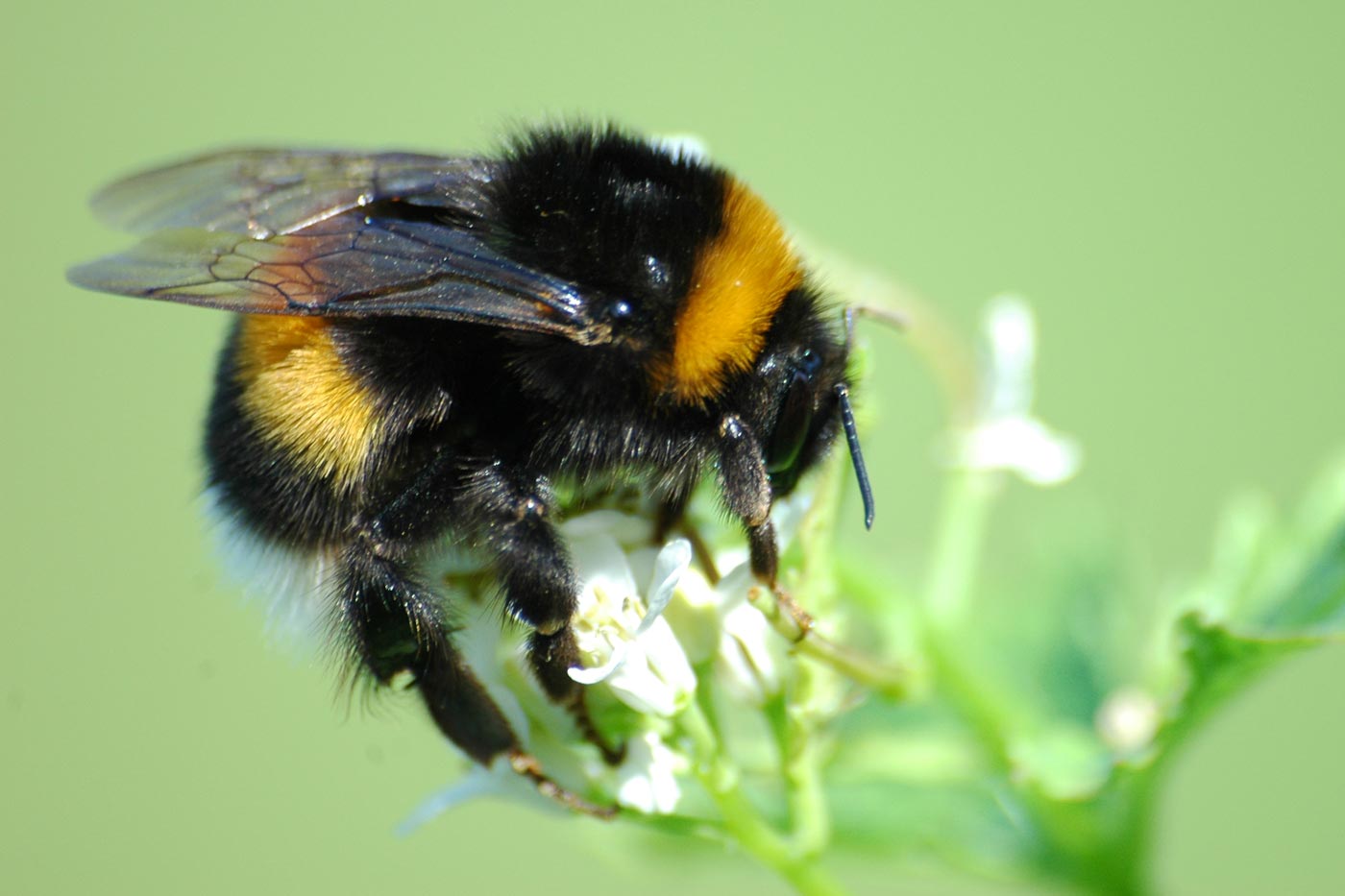Bee-killing pesticide to be used again in 2024
The UK Government has approved 'emergency' authorisation of a bee-killing pesticide on sugar beet crops for the fourth year running.
Thiamethoxam, a neonicotinoid, has been banned in the UK since 2018 but has been approved for use on British sugar beet crops in 2024.
The announcement from Farming Minister, Mark Spencer, comes despite an industry commitment to end reliance on the banned pesticide by 2023.
Thiamethoxam is lethal to bees – even a miniscule trace of this toxin can disrupt a bee's ability to navigate and reproduce, significantly reducing the chance of survival. With a third of UK food crops pollinated by insects, and their contribution to the UK economy estimated at hundreds of millions of pounds per year, the UK food system cannot function without bees.

Thiamethoxam, which has been approved for use on sugar beet crops this year despite being banned, is lethal to bees (Vera Buhl).
Research published in 2023 found harmful neonicotinoids present in more than 10% of English rivers, home to 3,800 invertebrate species, despite a ban of these chemicals in 2018.
Barnaby Coupe, land use policy manager at The Wildlife Trusts, said: "The Farming Minister's decision to authorise the use of a banned neonicotinoid pesticide on sugar beet for the fourth year in a row is a deathblow for wildlife, a backwards step in evidence-based decision making, and a betrayal of farmers who are producing food sustainably.
"On the same day that the Office for Environmental Protection has published a report revealing UK Government is still not on track to meet its own environmental commitments, it is shocking that politicians are still choosing to support short-term corporate profits at the expense of nature and the long-term sustainability of farm businesses.
"The Wildlife Trusts are deeply disappointed that this decision ignores a third of sugar beet farmers in England who chose not to use this chemical in previous years, and who will now be actively disadvantaged this year. It is entirely possible to produce food in a way that helps rather than harms nature – and UK farmers know that the use of this chemical is not a long-term solution.
"Rather than repeat authorisations for toxic chemicals, The Wildlife Trusts want to see British Sugar and the UK Government offer more support to transition away from harmful pesticides like these, which threaten the future of our farming and natural systems. This should include providing routes to market for farmers growing non-neonic treated sugar, and providing targeted financial support for non-neonic beet growers to cover additional risk currently taken on by the farmer."
The Wildlife Trusts submitted a formal complaint about the Minister's decision to grant authorisations in previous years to the Office for Environmental Protection (OEP) in June 2023, which is still under consideration. The UK Government's decision to authorise this chemical is in contradiction with the OEP's Progress on improving the natural environment in England report. This publication states that government's efforts to manage exposure to chemicals and pesticides has been limited and it is largely off-track to meet its commitments.

